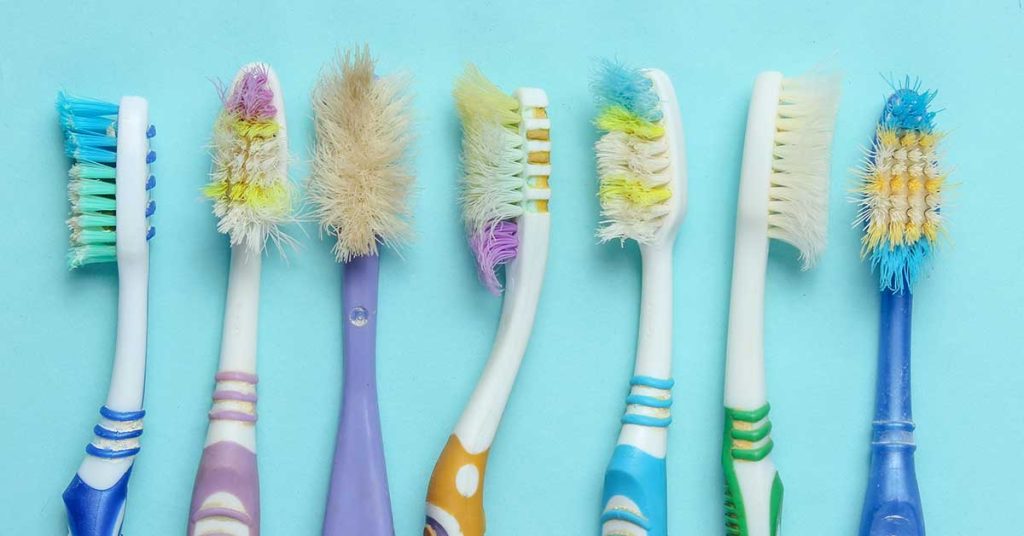Your toothbrush is the main tool in your defense against diseases of the mouth, mainly decay and gum disease. As such, choosing the right toothbrush – with the right toothpaste, of course – and making sure that the brush does its job to the max should be your primary concern. Now, we could say a lot about how to choose the right toothbrush. However, it is even more important to know that a toothbrush is not a permanent tool. Instead, you need to change it every once in a while. But how often should you change your toothbrush? That’s the question we’re here to answer.
Why Should You Change Your Toothbrush?
Most modern toothbrushes are made of nylon bristles so that they can effectively clean the teeth surfaces. In addition, to effective, they should easily clean those surfaces. While nylon is a strong and hygienic material, it still deteriorates over time. When you’ve used your toothbrush for a while, you’ll notice that the bristles may become frayed. This not only hinders their ability to clean but can cause harm to the teeth and gums as well.
Another reason to consider is the bacteria that build up on the brush. Yes, you clean it with warm water when you finish brushing. Even still, some bacteria cling to the bristles and the plastic of the brush. After a while, it becomes impossible to clean and will need replacement.
How Often Should You Change Your Toothbrush?
The amount of time the toothbrush remains fully functional depends on your oral hygiene regimen. In other words, how many times you brush your teeth daily? If you stick to the recommended regimen of brushing twice per day, then in most cases your toothbrush will need to be changed every 3 to 4 months.
There are some signs to look for if you are not sure. The straightness and cleanness of the bristles is your main indicator. If you find them becoming frayed, or their color starts to change to a more yellowish tint rather than white, then the time to change your brush is now.
What Happens if You Don’t Change Your Brush Often Enough
As we explained before, your oral hygiene depends mainly on your toothbrush. If your brush is in a less-than-optimal condition, then not only is the quality of the cleaning affected, but you could end up causing more harm than good. Frayed bristles can scratch the teeth causing microcracks. Those cracks may later turn to decay. In addition, the gums could risk injury, possibly leading to gum disease.
It seems that there is no question that you should change your toothbrush. However, if you’re wondering exactly how often should you change your toothbrush, here’s the answer. Change it every 3 to 4 months on average.
Ready to take care of your teeth? Click here to make your appointment with one of our experienced local dentists!

